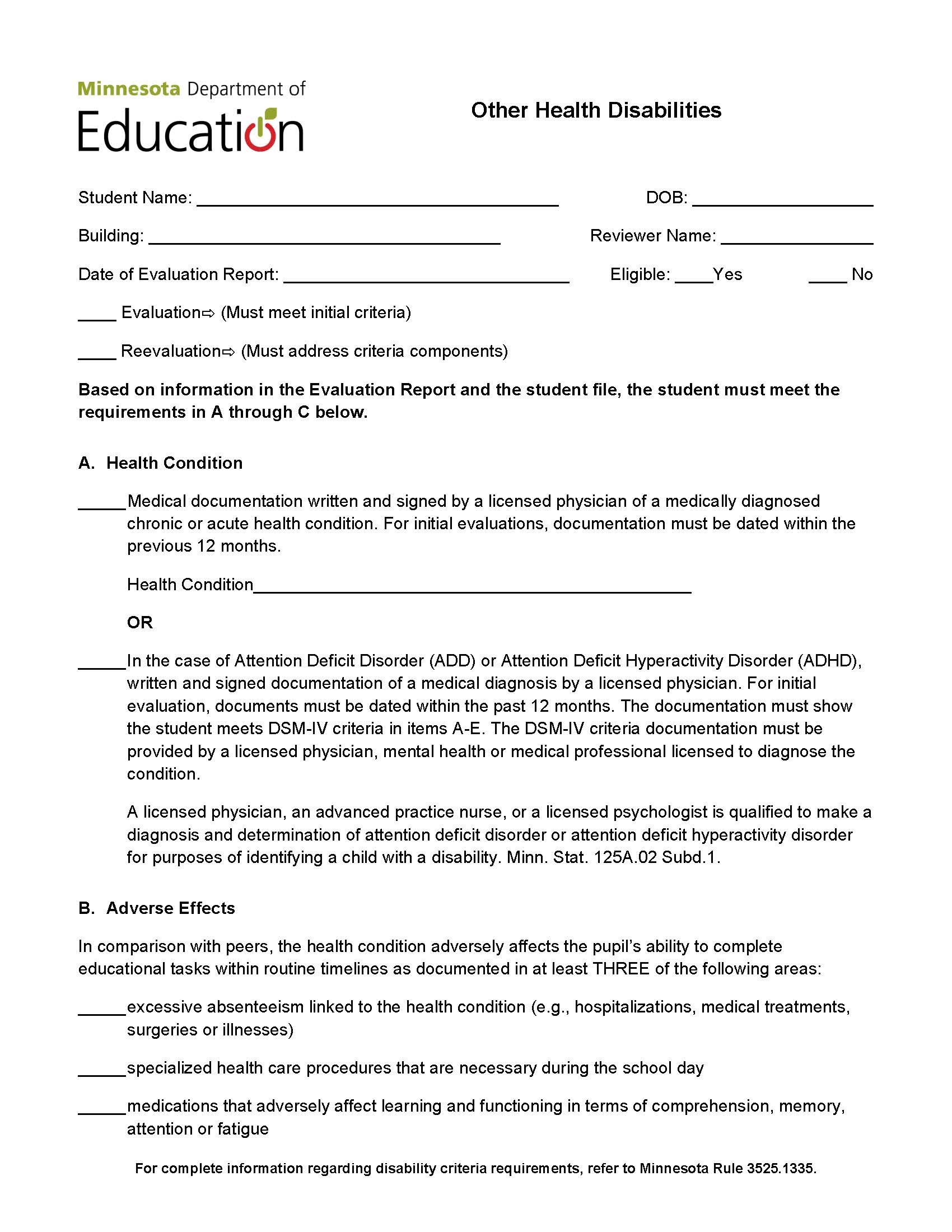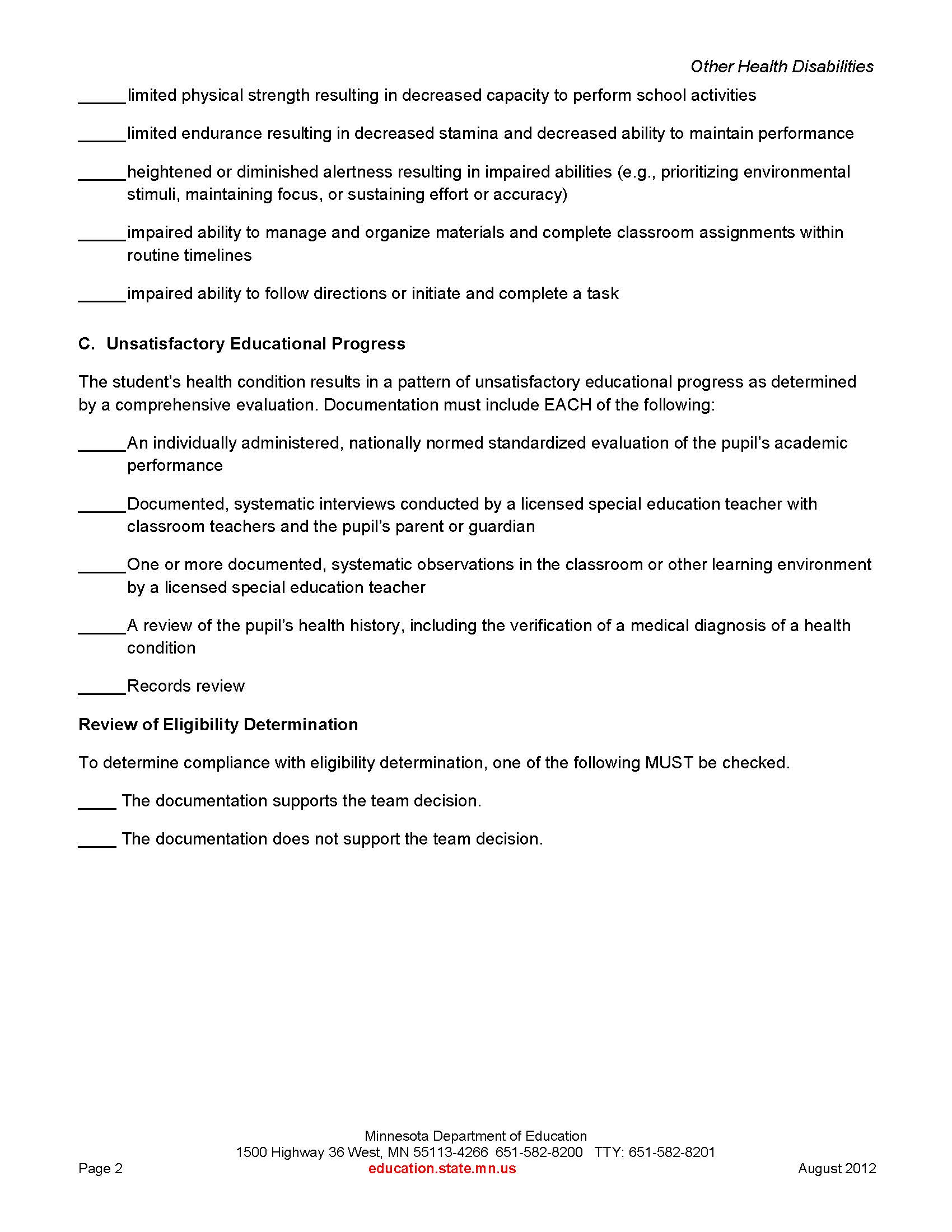
Visually Impaired
Disability Label & Prevalence |
Definition |
General Characteristics |
Identification & Assessment |
Educational Approaches |
Educational Placement Alternatives |
Visually Impaired 2 out of every 1,000 children are born blind. 1 in 200 to 250 students in Special Education are served. |
IDEA – An impairment in vision that, even with correction, adversely affects a children's educational performance. The term includes both partial sight and blindness. |
Could exhibit: Cognition and language issues, motor development and mobility issues, social adjustment and interaction issues. |
Eye Exam |
Special Adaptations Blind: braille, tactile aids and manipulates, computer access. |
Special Adaptations for Low Vision: visual efficiency, optical devices (magnifying glasses), reading print (enlarging), classroom adaptations (lighting, placement) Expanded Core Curriculum: orientation and mobility, listening skills, functional life skills. General Education Classrooms Resource Room <>Separate Classroom Special Day School |
Description of 2 evidence-based strategies |
Using low-vision devices increases oral comprehension, reading speed (oral and silent) and the amount of reading accomplished. (Ferrel, 2006)
Drill-and-practice in Braille can lead to increased reading achievement, faster silent and oral reading rates, fewer reading errors and greater comprehension. (Ferrel, 2006) |
Practitioner Based Article related to this area: Include reference and summary of the article. | Make sure to give the students ample time; a student with visual impairment is frequently deprived of ample opportunities to learn. Due to lack of normal vision, staff, teachers, and caregivers who work with them often passively serve students. If they don’t get ample time, they can lose the opportunity to learn object permanence, cause-effect relationships, a sense of directionality, as well as an opportunity to learn communication, social, and daily functional skills. (Li, 2009) |
MN Eligibility Checklist

